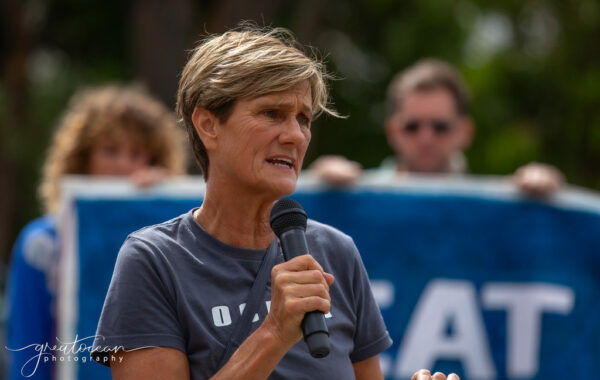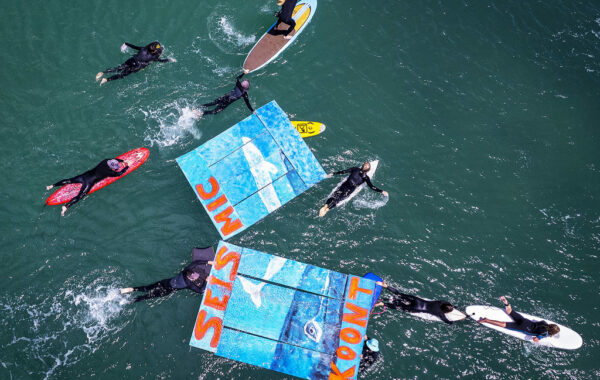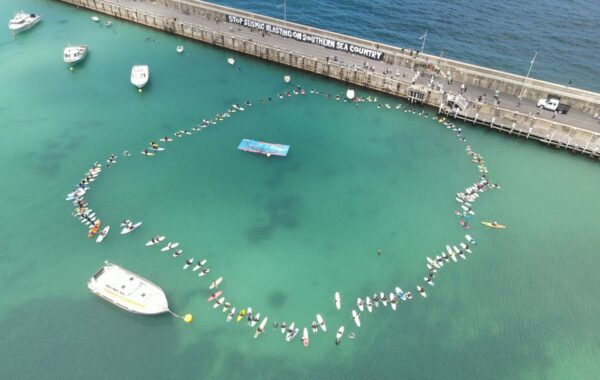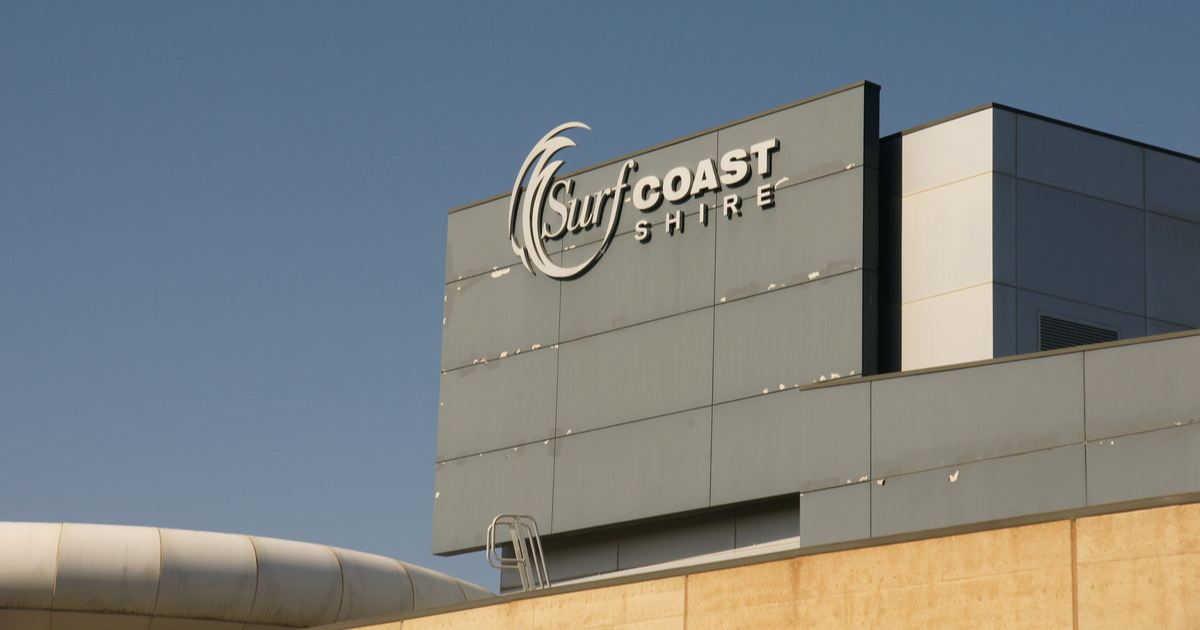Great Ocean Rescue organisers say protests have only just begun

The Warrnambool paddle out attracted hundreds of surfers and spectators who rallied at Warrnambool’s waterfront to express their objection to seismic blasting. Photo: SUPPLIED
A MONTH-long series of protests against seismic blasting in the offshore Otway Basin involving thousands of locals and tourists has come to an end.
Otway Coastal Environment Action Network’s (OCEAN) campaigner Lisa Deppeler said the aim of the Great Ocean Rescue Tour was to inform people about the impacts of seismic blasting on marine life.
“It’s time to blow the lid on this awful secret and that is the objective of the Great Ocean Rescue Tour.
“We have more things planned and aim to make this the biggest election issue in the region next election.”

Seismic blasting for undersea fossil fuel exploration, involving blasts louder than atomic bombs at 250 decibels, is conducted non-stop for months using air guns on ships.
Critics argue it harms marine life, from tiny zooplankton to whales, including endangered species.
The month-long Great Ocean Rescue Tour, aligning with the summer tourist season along the Great Ocean Road, sought to highlight these harmful effects.
The tour began on January 5 in Barwon Heads with the Surfrider Foundation’s “Southern Blast” documentary, followed by a street rally in Ocean Grove.
It continued with events in Torquay, Wye River, Apollo Bay, Port Fairy, and Warrnambool, drawing thousands over several weekends.
Apollo Bay’s rally had 350 participants, including local fishers supporting OCEAN, marching to the foreshore.

Last Sunday’s rally and paddle out in Warrnambool attracted hundreds of surfers and spectators who rallied at the waterfront to express their objection to the two proposals to seismic blast more than 45,000sqkm of ocean directly off their coast.
Marcus Nolle from the Apollo Bay Fishermen’s Co-operative said the science proved seismic blasting was damaging.
“Seismic blasting kills the southern rock lobster at every stage of its development.”
“The larvae are pulverised by the blasts whilst the adult fish have their balance mechanism damaged and they become susceptible to predation.”
Gunditjmara woman Yaraan Couzens Bundle said the home of “Koontapool”, the southern right whale, was under direct threat from seismic blasting.
“We as First Peoples, we don’t own the land, we belong to it, and those connections span back eons of time.
“In Gundijmara Country, seismic blasting can never coexist peacefully with ancient living creation songlines and our sacred traditions.

The Australian Government is currently reviewing its offshore environmental management regime, focusing on improving the clarity of consultation requirements for offshore petroleum and greenhouse gas storage activities.
Feedback is sought from a wide range of stakeholders, including industries, traditional owners, government agencies, and environmental groups, on the Offshore Petroleum and Greenhouse Gas Storage (Environment) Regulations 2023 to ensure targeted and effective consultation.

















